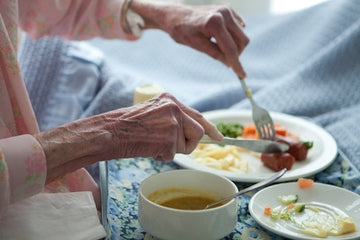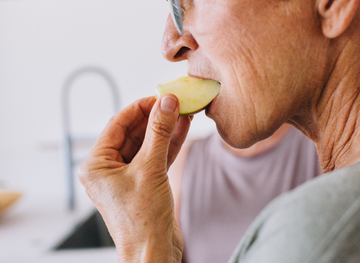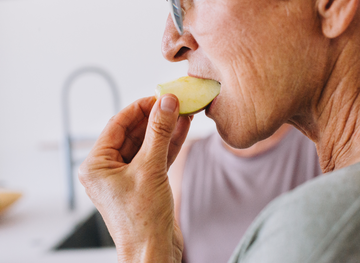Role of Nutrition in Bedsore Prevention and Healing: Diet Tips and Supplements
Aug 25, 2023

Bedsores, also known as pressure ulcers, are a common concern among individuals who are bedridden or have limited mobility. These painful and often slow-healing wounds can significantly affect a person's quality of life. While proper medical care and frequent repositioning are crucial for bedsore prevention, nutrition plays a vital role in promoting healing and preventing the development of these sores. In this blog post, we will explore the role of nutrition in bedsore prevention and healing, discuss essential diet tips, and highlight the potential benefits of certain supplements.
Understanding Bedsores:
Bedsores occur when there is prolonged pressure on specific areas of the body, usually over bony prominences like the hips, heels, and tailbone. Lack of movement leads to restricted blood flow, depriving the tissues of oxygen and nutrients, which can result in tissue damage and the formation of ulcers. Proper nutrition is essential for maintaining the integrity of the skin and supporting the body's healing processes.
Diet Tips for Bedsore Prevention and Healing:
- Adequate Protein Intake: Protein is crucial for tissue repair and wound healing. Include protein-rich foods such as lean meats, fish, poultry, eggs, dairy products, legumes, and tofu in your diet. Aim for a daily intake of 1.2-1.5 grams of protein per kilogram of body weight.
- Vitamin C and Zinc: These nutrients are essential for collagen synthesis, a protein that helps in wound healing. Include citrus fruits, strawberries, broccoli, bell peppers, tomatoes, and sources of lean red meat, poultry, nuts, and seeds to ensure an adequate intake of vitamin C and zinc.
- Omega-3 Fatty Acids: Found in fatty fish like salmon, mackerel, and sardines, as well as walnuts and flaxseeds, omega-3 fatty acids possess anti-inflammatory properties that aid in wound healing and reducing inflammation.
- Hydration: Drinking sufficient water is essential for maintaining skin hydration. Aim for at least 8-10 glasses of water per day, unless contraindicated due to medical conditions.
- High-Fiber Foods: Constipation can exacerbate the risk of developing bedsores. Consuming a diet rich in fruits, vegetables, whole grains, and legumes can help prevent constipation and maintain regular bowel movements.
Supplements for Bedsore Prevention and Healing:

- Vitamin A: This vitamin promotes cell growth and immune function. It can be obtained through foods like sweet potatoes, carrots, leafy greens, and fortified dairy products or through supplementation under medical guidance.
- Vitamin E: Known for its antioxidant properties, vitamin E helps protect the skin from damage. Good sources include nuts, seeds, and vegetable oils.
- Probiotics: Probiotics, found in fermented foods like yoghourt, kefir, and sauerkraut, can support gut health and immune function, indirectly promoting overall healing.
- Arginine: Arginine is an amino acid that aids in collagen production and wound healing. It can be found in sources such as meat, dairy, nuts, and seeds.
THE BEST BEDSORE PREVENTION GEL:

SOREZE GEL: Clinically proven and dermatologically tested Soreze Bedsores prevention gel helps to prevent bed sores. Soreze bedsore prevention gel dries to form a long-lasting, flexible, water-repellent, and protective anti-friction film. The gel is specifically designed to protect the skin from irritation caused by moisture, such as sweat, urine, and faecal matter. Trust Soreze Bedsores prevention gel to provide superior protection for your skin and help prevent discomfort caused by bedsores.
While nutrition alone cannot entirely prevent or heal bedsores, it plays a vital role in supporting the body's healing processes and reducing the risk of developing these painful ulcers. A well-balanced diet rich in protein, vitamins, minerals, omega-3 fatty acids, and fiber can promote wound healing, enhance immune function, and maintain overall skin health. It is crucial to consult with healthcare professionals, including registered dietitians or doctors, to tailor a nutrition plan that suits individual needs and complements other medical interventions in the prevention and treatment of bedsores.



